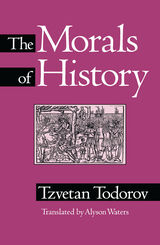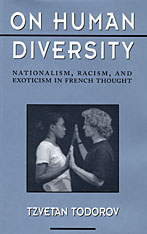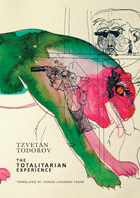
The relationship between Western democracies and Islam, rarely entirely comfortable, has in recent years become increasingly tense. A growing immigrant population and worries about cultural and political assimilation—exacerbated by terrorist attacks in the United States, Europe, and around the world—have provoked reams of commentary from all parts of the political spectrum, a frustrating majority of it hyperbolic or even hysterical.
In The Fear of Barbarians, the celebrated intellectual Tzvetan Todorov offers a corrective: a reasoned and often highly personal analysis of the problem, rooted in Enlightenment values yet open to the claims of cultural difference. Drawing on history, anthropology, and politics, and bringing to bear examples ranging from the murder of Theo van Gogh to the French ban on headscarves, Todorov argues that the West must overcome its fear of Islam if it is to avoid betraying the values it claims to protect. True freedom, Todorov explains, requires us to strike a delicate balance between protecting and imposing cultural values, acknowledging the primacy of the law, and yet strenuously protecting minority views that do not interfere with its aims. Adding force to Todorov's arguments is his own experience as a native of communist Bulgaria: his admiration of French civic identity—and Western freedom—is vigorous but non-nativist, an inclusive vision whose very flexibility is its core strength.
The record of a penetrating mind grappling with a complicated, multifaceted problem, The Fear of Barbarians is a powerful, important book—a call, not to arms, but to thought.



How can we think about peoples and cultures unlike our own? In the early modern period, the fact of human diversity presented Europeans with little cause for anxiety: they simply assumed the superiority of the West. During the eighteenth century this view was gradually abandoned, as thinkers argued that other peoples possessed reason and sensibility, and thus deserved the same respect that Westerners accorded themselves. Since that time, however, Enlightenment belief in the universals of human nature has fallen into disrepute; critics allege that such notions have had disastrous consequences in the twentieth century, ranging from prejudice to persecution and outright genocide.
Tzvetan Todorov, an internationally admired scholar, aims in this book to salvage the good name of the Enlightenment so that its ideas can once more inspire humane thought and action. The question he poses is of urgent relevance to the conflicts of our age: How can we avoid the dangers of a perverted universalism and scientism, as well as the pitfalls of relativism? Since the French were the ideologues of universalism and played a preeminent role in the diffusion of Enlightenment ideas in Europe, Todorov focuses on the French intellectual tradition, analyzing writers ranging from Montaigne through Tocqueville, Michelet, and Renan, to Lévi-Strauss. He shows how theories of human diversity were developed in the eighteenth century, and later systematically distorted. The virtues of Enlightenment thought became vices in the hands of nineteenth-century thinkers, as a result of racism, nationalism, and the search for exoticism. Todorov calls for us to reject this legacy and to strive once again for an acceptance of human diversity, through a "critical humanism" prefigured in the writings of Rousseau and Montesquieu.
This is a work of impressive erudition and insight--a masterly synthesis that can help us think incisively about the racial and ethnic tensions confronting the world today.

READERS
Browse our collection.
PUBLISHERS
See BiblioVault's publisher services.
STUDENT SERVICES
Files for college accessibility offices.
UChicago Accessibility Resources
home | accessibility | search | about | contact us
BiblioVault ® 2001 - 2024
The University of Chicago Press









